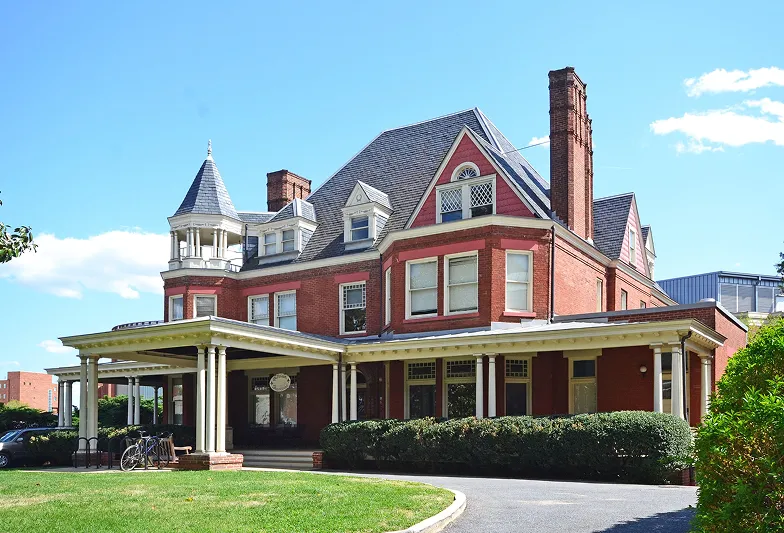At Commonwealth Contractors, our approach to building mirrors my personal philosophy on life, blending practicality with a touch of ingenuity. With a deep respect for classical building principles and a keen eye for modern improvements, you can rest assured that when you collaborate with Commonwealth Contractors, your project will be managed with quality and integrity.
.svg)


Planning a home renovation requires careful consideration of timelines, budgets, and project scope to ensure success. From initial design concepts to final inspections, a well-structured renovation timeline typically spans 4-8 months, depending on project complexity. Understanding this timeline is crucial for Virginia homeowners looking to upgrade their living spaces while minimizing disruption and staying within budget.
Commonwealth Contractors specializes in guiding Virginia residents through each phase of home renovation, from pre-planning and permitting to construction and completion. With local expertise and proven project management methods, we help homeowners navigate the specific challenges of renovating in Virginia, including seasonal considerations, building codes, and material selection.
This detailed planning guide breaks down the essential stages of home renovation, helping you understand what to expect at each step, from the initial consultation and design phase through construction and final walkthrough. Whether you're planning a kitchen remodel, bathroom upgrade, or whole-house renovation, proper timeline planning is key to achieving your desired results while avoiding common renovation pitfalls.
Essential Steps for Planning a Successful Home Renovation
Starting a home renovation requires careful planning and understanding of the process. Here's a detailed breakdown of the key steps to ensure your renovation project starts off right:

Initial Property Assessment
Begin with a thorough inspection of your home, ideally with the help of a professional inspector. Document all findings, including structural issues, outdated systems, and desired aesthetic improvements. Create a detailed report that will help prioritize tasks based on urgency and importance.
Setting Clear Renovation Goals
- Identify specific improvements needed for functionality
- Determine potential impact on property value
- Consider energy efficiency upgrades
- Break down large goals into manageable tasks
Creating a Realistic Timeline
Develop a comprehensive schedule that accounts for different project phases. Minor updates typically take 2-3 weeks, while major renovations can extend several months. Factor in potential delays due to weather, material availability, and contractor schedules.
Budget Planning and Management
Prepare a detailed budget covering all aspects of the renovation:
- Materials and labor costs
- Permit fees and administrative expenses
- 15-20% contingency fund for unexpected issues
- Cost-saving alternatives without compromising quality
Understanding Regulatory Requirements
Research and comply with local building codes and regulations before starting your project. This includes:
- Obtaining necessary building permits
- Understanding zoning restrictions
- Meeting safety and building code requirements
Professional Expertise
Engage with qualified professionals early in the planning process. Architects can help with design and structural considerations, while experienced contractors can provide realistic timelines and cost estimates. Their expertise is crucial for complex renovations and ensuring project success.
Planning Your Home Renovation: Tips for Your Home Renovation Timeline
When planning your home renovation, it's essential to take a structured approach that encompasses design, professional consultations, and financial planning. This thorough preparation ensures the project proceeds smoothly and stays within budget while minimizing potential delays and complications.
Creating Your Initial Project Plan
Start by drafting a comprehensive preliminary plan that outlines all desired changes and potential upgrades. This document should include design inspiration, specific material preferences, and a clear vision of the final result. Consider both aesthetic and functional improvements while prioritizing tasks based on necessity and budget constraints.
Professional Consultation and Design Phase
- Architect Consultation: Essential for structural changes and ensuring compliance with building codes
- Designer Input: Helps optimize space utilization and aesthetic cohesion
- Contractor Assessment: Provides practical insights on feasibility and potential challenges
Project Breakdown and Scheduling
Segment your renovation into distinct phases to maintain organization and track progress effectively:
- Pre-construction: Permits, design finalization, and material ordering
- Demolition: Removal of existing structures and preparation work
- Construction: Major structural work and system updates
- Installation: Fixtures, finishes, and aesthetic elements
- Final Touches: Clean-up, inspections, and punch list completion
Critical Milestones and Progress Tracking
Establish key milestones to monitor project advancement and maintain accountability:
- Permit approvals and inspections
- Completion of major structural work
- Installation of essential systems (electrical, plumbing, HVAC)
- Final inspections and project sign-off
Financial Planning and Management
Secure appropriate financing before project initiation. Consider options such as home equity loans, construction loans, or personal savings. Include a 10-20% buffer in your budget for unexpected issues and maintain detailed records of all expenses and payment schedules.
Smart Budgeting Strategies for Your Home Renovation
Efficient budgeting and financial planning are cornerstone practices for ensuring a home renovation stays on track financially. Creating a well-structured budget that accounts for both expected and unexpected costs is essential for project success.

Building Your Renovation Budget
Start by developing a detailed budget that includes materials, labor, permits, and a contingency fund of 10-20% for unexpected issues. Using budgeting tools from resources like HomeAdvisor can help estimate costs accurately.
Smart Financial Planning Approaches
- Separate must-have renovations from nice-to-have upgrades
- Research material costs across multiple suppliers
- Consider timing your project during off-peak seasons for better rates
- Track expenses using budgeting software like Mint or YNAB
Maximizing Cost Savings
Look for opportunities to reduce costs without compromising quality. Consider DIY for simple tasks like painting or basic repairs, and explore using recycled or second-hand materials when appropriate. Getting multiple contractor bids helps ensure competitive pricing and better value.
Maintaining Financial Control
Implement strict financial monitoring throughout the renovation. Regular budget reviews help identify potential overruns early, allowing for adjustments before they become significant issues. Keep detailed records of all expenses and maintain open communication with contractors about costs.
Consider Material and Design Selections for Home Renovation
Strategic Design Planning
Choosing the right designs and materials is crucial for any home renovation, requiring careful consideration of both aesthetic and practical elements. The key is finding the perfect balance between personal style preferences and functional requirements while ensuring all selections align with your budget and Virginia's unique climate conditions.
Material Selection for Virginia's Climate
When selecting materials for Virginia homes, climate adaptability is paramount. Choose materials that can effectively manage the region's humidity levels and temperature fluctuations. High-quality thermal insulation and moisture-resistant materials not only enhance durability but also contribute to better energy efficiency year-round.
- Moisture-resistant drywall for humid areas
- Weather-resistant exterior materials like fiber cement siding
- Energy-efficient windows with proper weatherstripping
Budget-Conscious Material Decisions
Create a detailed material budget that accounts for both immediate costs and long-term value. Consider setting aside 10-20% of your budget for unexpected expenses, and research materials that offer the best balance of quality and cost-effectiveness.
- Compare material grades and their price points
- Research bulk purchasing opportunities
- Consider timing purchases with seasonal sales
Durability and Maintenance Considerations
Prioritize materials that offer proven durability and require minimal maintenance to reduce long-term costs. Look for products that are known to handle the elements effectively and have demonstrated longevity in similar climate conditions.
- Select scratch-resistant flooring options
- Choose fade-resistant exterior materials
- Opt for easy-clean surface materials
Remember to consider the warranty terms and maintenance requirements for all selected materials. This forward-thinking approach helps prevent unexpected expenses and ensures your renovation maintains its value over time.
Understanding Building Permits and Legal Requirements for Renovations
Navigating the permit process is crucial to ensure home renovations comply with local building codes and regulations, thus ensuring the legality and safety of the work. Before beginning any renovation project, it's essential to understand the permit requirements and allow adequate time for approval. Here's what you need to know:

Types of Required Permits
Different renovation projects require specific permits, each serving a distinct purpose in ensuring safety and compliance:
- Structural modifications (walls, additions, roofing)
- Electrical system changes
- Plumbing installations or modifications
- HVAC system updates
The Permit Application Process
The permit acquisition process involves submitting detailed plans and applications to local authorities like the Building Department. This process typically includes:
- Detailed project plans and specifications
- Application forms and required documentation
- Payment of necessary fees
- Multiple inspections throughout the renovation
Building Code Compliance
Understanding and following Virginia's building codes is essential for successful renovations. Key considerations include:
- Safety requirements for structural modifications
- Minimum standards for materials and installations
- Specific requirements for electrical and plumbing work
- Energy efficiency standards
Consequences of Non-Compliance
Failing to obtain necessary permits or follow building codes can result in serious consequences:
- Monetary fines and penalties
- Stop-work orders halting construction
- Mandatory removal of completed work
- Decreased property value
- Complications during future property sales
Contact your local building department early in the planning process to ensure your renovation project meets all legal requirements and proceeds smoothly. They can provide specific guidance for your project and help you avoid potential complications.

Managing Home Renovation Delays and Project Setbacks
Construction delays are an unfortunate reality in home renovation projects. Whether caused by material shortages, weather conditions, or labor issues, these setbacks can significantly impact your daily life and project timeline. Understanding how to handle delays while maintaining a professional relationship with your contractor is crucial for project success.
Understanding Common Types of Delays
Construction delays can significantly impact your home renovation timeline and living situation. Understanding the various types of delays helps you respond effectively and maintain a productive relationship with your contractor.
- Material availability issues and extended lead times
- Weather-related setbacks affecting exterior work
- Labor shortages or subcontractor scheduling conflicts
- Permit processing and inspection delays
- Unforeseen conditions discovered during construction
Personal Impact of Construction Delays
Living through a renovation project comes with significant challenges, and delays can amplify these difficulties. Your family may be confined to limited living spaces, dealing with incomplete kitchens or bathrooms that affect daily routines. The stress of living in a construction zone – with dust, noise, and limited functionality – can be particularly challenging when extended by delays. Many homeowners face additional expenses for takeout meals when kitchens are unusable, or temporary housing costs if areas become uninhabitable. The emotional toll of having your personal space disrupted for longer than planned shouldn't be underestimated.
Key impacts to consider:
- Limited access to essential spaces like kitchens or bathrooms
- Additional utility costs from incomplete insulation or temporary systems
- Storage fees for furniture and belongings
- Extended exposure to construction dust and noise
- Disruption to children's routines and study spaces
- Impacts on ability to work from home
How to Effectively Manage Home Renovation Delays
Professional Communication and Documentation
When facing delays, maintaining professional communication becomes your most valuable tool. Document all interactions with your contractor through follow-up emails after verbal conversations and keep a detailed photo log of project progress. Establish regular check-ins with your contractor to stay informed of both progress and potential issues. While frustration is natural, maintaining a professional tone helps facilitate better solutions.
Managing Delays and Protecting Your Interests
Understanding your contract rights while pursuing practical solutions is essential during delays. Review your contract's delay provisions and request written recovery schedules when setbacks occur. Consider reasonable compromises, such as material substitutions, to keep the project moving forward. For significant delays, consult a construction attorney to understand your options while continuing to document all related expenses and communications.
Financial Considerations
Protect your financial interests by carefully managing payments and documenting all delay-related expenses. Never pay for incomplete work and maintain appropriate retainage as specified in your contract. Keep detailed records of any additional costs incurred due to delays, including temporary housing, storage, or increased material costs.
Working Toward Resolution
Focus on achieving project completion while effectively managing delays. Stay available for timely decisions but maintain clear boundaries about site visits and communication times. Consider reasonable compromises on non-essential items while ensuring critical path items remain prioritized. Document substantial completion requirements clearly and schedule final inspections promptly when work is ready.
Important steps for resolution:
- Maintain clear communication channels with your contractor
- Document all agreements and changes in writing
- Stay focused on critical path items
- Keep detailed records of all delay-related impacts
- Be prepared to make quick decisions when needed
Remember that while delays are frustrating, maintaining professional relationships and thorough documentation will usually lead to better outcomes than confrontational approaches. Focus on practical solutions while protecting your interests through proper documentation and clear communication.
Why Commonwealth Contractors Excels at Virginia Home Renovations
Local Expertise in Virginia Building Requirements
Understanding Virginia's specific building codes and climate considerations is crucial for any renovation project's success. Commonwealth Contractors brings decades of experience navigating the state's complex regulatory landscape, ensuring each project meets or exceeds local building standards while considering Virginia's unique weather patterns and environmental factors.
Their deep knowledge of Virginia Department of Housing and Community Development guidelines means your renovation will be compliant from the start, avoiding costly corrections or legal issues down the line.

Comprehensive Renovation Management
From initial concept to final inspection, Commonwealth Contractors delivers end-to-end project management that covers:
- Custom design development and material selection
- Permit acquisition and regulatory compliance
- Interior and exterior renovations
- Structural modifications and additions
- Final quality inspections and project completion
Quality Craftsmanship and Client Trust
Commonwealth Contractors maintains an unwavering commitment to quality workmanship and transparent communication. Their team of skilled professionals takes pride in delivering results that not only meet but exceed client expectations, backed by their strong reputation in the Virginia construction industry.
Sustainable Building Practices
With a focus on environmental responsibility, Commonwealth Contractors implements sustainable building practices that benefit both homeowners and the environment. Their approach includes:
- Energy-efficient material selection and installation
- Waste reduction and recycling protocols
- Implementation of modern energy-saving technologies
- Long-lasting solutions that minimize future maintenance
Advanced Project Management Technology
Using Buildertrend®, an industry-leading project management platform, Commonwealth Contractors ensures seamless communication and project tracking. This technology provides clients with:
- Real-time project updates and progress reports
- Direct communication with the project team
- Document sharing and approval processes
- Schedule tracking and milestone updates
Choose Commonwealth Contractors for your home renovation to benefit from their local expertise, comprehensive service approach, and commitment to excellence. Their combination of traditional craftsmanship and modern project management ensures your renovation project will be handled with the utmost care and professionalism.

.svg)
%2520(1).webp)




.webp)
.webp)



.webp)
.webp)











.webp)
.webp)

.webp)
.webp)
%2520(1).webp)
%2520(1).webp)

.webp)
.webp)
%2520(1).webp)
%2520(1).webp)

%2520(1).webp)
%2520(2).webp)

%2520(1).webp)
%2520(2).webp)
.webp)



.webp)
.webp)
%2520(2).webp)
.webp)
.webp)
%2520(1).webp)

.webp)
%2520(3)%2520(1).webp)
.webp)
%2520(1)%2520(1).webp)
.webp)
%2520(1).webp)
%2520(2)%2520(1).webp)